How is mesothelioma treated?
Depending on the type and stage, mesothelioma can be treated using surgery, chemotherapy, radiation therapy, or immunotherapy. Your care team may use a combination of these treatments, known as a multimodal approach.
Mesothelioma cancer treatments may include:
- Surgery
- Chemotherapy
- Radiation therapy
- Immunotherapy
- Targeted therapies
- Palliative treatments
- Complementary therapies
- Clinical trials
Surgery
Surgery is often one of the first steps in your care plan for mesothelioma. The type of surgery will depend on where your mesothelioma started and how far it has progressed.
Your healthcare provider will discuss the goals of your specific surgery. In most cases of mesothelioma, surgery is unable to remove all the cancer. Instead, the goal of surgery is to manage symptoms and improve your quality of life.
-
Cytoreductive Surgery with Heated Chemotherapy (HIPEC)
Cytoreductive Surgery with Heated Chemotherapy (HIPEC) is a surgical option that treats peritoneal mesothelioma, which starts in the lining of the abdomen. It combines surgery with chemotherapy.
First, your surgeon will remove cancer in the abdomen. Next, high doses of heated chemotherapy drugs are placed inside the abdomen to destroy any remaining cancer cells. These drugs are left for a short time and then removed.
-
Debulking surgery
Debulking surgery is a procedure that may treat pleural mesothelioma and peritoneal mesothelioma. It is less extensive than other surgical options. During the surgery, your care team removes as much of the cancer as possible.
-
Extrapleural Pneumonectomy (EPP)
Extrapleural pneumonectomy (EPP) is a surgical procedure used to treat pleural mesothelioma found in your lungs. It’s much more extensive than traditional pneumonectomy, which removes one lung, or other lung procedures for mesothelioma.
During EPP, your surgeon will remove the entire lung on one side of the chest, the lining around it, part of the diaphragm, nearby lymph nodes and sometimes the sac around the heart.
-
Omentectomy
If your abdominal mesothelioma has spread to the fatty tissue covering the organs in your abdomen (called the omentum), your doctor may suggest an omentectomy. This surgery removes the fatty tissue affected by cancer.
-
Pleurectomy and Decortication (P/D)
This surgical procedure is a treatment option that leaves the lung and diaphragm in place. During P/D, the surgeon removes the lining around the lung (the pleura) and any tumors or abnormal masses. In early mesothelioma, P/D may remove all the cancer, but it’s often used to relieve symptoms.
Mesothelioma chemotherapy
Chemotherapy uses drugs to destroy cancer cells in the body and is a standard part of treatment plans for mesothelioma. In the later stages of the disease, chemotherapy is often the primary treatment option to slow cancer growth.
In earlier stages of mesothelioma, your care team may recommend chemotherapy along with surgery. Before surgery, chemotherapy helps shrink the size of tumors. After surgery, it helps destroy cancer cells that couldn’t be seen or removed during your procedure. In some cases, your care team may use localized chemotherapy during surgery.
Hyperthermic intraperitoneal chemotherapy (HIPEC)
This type of local chemotherapy is given during a surgical procedure to treat peritoneal mesothelioma. After areas of cancer are surgically removed, your care team delivers a high dose of heated chemotherapy drugs directly into the abdomen.
Hyperthermic intrathoracic chemotherapy (HITHOC)
HITHOC is a type of localized chemotherapy treatment for pleural mesothelioma. Your care team delivers a high dose of heated chemotherapy drugs directly into the chest. As this type of chemo is more targeted to the specific area of cancer, it may have fewer side effects than chemotherapy infusions that affect the whole body.
Mesothelioma radiation therapy
Radiation therapy is a treatment for pleural mesothelioma that destroys cancer cells by using targeted beams or particles of radiation. Although it is not typically a treatment option for peritoneal mesothelioma, it can be used after surgery has removed a lung. In the later stages of mesothelioma, radiation therapy is usually a palliative treatment to manage symptoms or relieve pain.
External Beam Radiation Therapy (EBRT)
EBRT is the most common type of radiation therapy to treat pleural mesothelioma. During this therapy, your care team delivers radiation to a specific area in the chest using high-energy X-ray beams.
Intensity-Modulated Radiation Therapy (IMRT)
This advanced type of external beam radiation therapy uses computer technology and 3D imaging to help customize multiple rays and intensities of radiation. This gives your team greater precision in delivering radiation designed for your specific cancer and minimizes the effects on nearby healthy tissue.
Internal Radiation Therapy
Also called brachytherapy, internal radiation therapy uses radioactive materials, like ribbons, seeds or particles, delivered directly into or nearby tumors within the body. It’s not commonly used in the treatment of mesothelioma.
Mesothelioma immunotherapy
Immunotherapy helps your immune system better recognize and fight cancer cells. It’s an approved treatment option for some people living with pleural mesothelioma who can’t be treated using surgery. Immunotherapy destroys cancer cells and often has fewer side effects than traditional chemotherapy drugs.
The main immunotherapy drugs for mesothelioma treatment are checkpoint inhibitors. This type of immunotherapy works by blocking certain checkpoints on cancer cells, allowing the body to recognize those cells as harmful and destroy them.
Targeted therapy for mesothelioma
Mesothelioma cancer cells have undergone abnormal changes. Targeted therapies identify these changes to specifically target the cells and slow the growth of cancer; they are often used together with chemotherapy.
The primary targeted therapy for mesothelioma is a drug called bevacizumab. It targets a protein in cancer cells that aids new blood vessel growth. Stopping new blood vessels from growing deprives or “starves” the cancer cells of nutrients, preventing them from spreading.
Palliative care
Palliative care focuses on reducing mesothelioma symptoms, improving quality of life and supporting patients throughout treatment. Treatments could include surgical procedures, medications, pain management, respiratory therapy, nutrition, emotional support, and spiritual care.
While hospice care is an option when other treatments have stopped, palliative care provides benefits at any stage of your mesothelioma treatment.
Palliative surgeries
It’s common for mesothelioma to cause fluid buildup. Palliative procedures or surgeries can reduce this buildup, providing relief from symptoms.
- Pleurocentesis: Also called thoracentesis, pleurocentesis is a minimally invasive procedure that uses a hollow needle to remove fluid buildup, known as pleural effusion, from the space between the lining of the lungs and the chest wall. It can help relieve symptoms like shortness of breath.
- Pleurodesis: Pleurodesis stops fluid buildup in the chest by closing off the space between the lining of the lungs and the lining of the chest wall. Preventing fluid buildup makes it easier for people with pleural mesothelioma to breathe.
- Paracentesis: Paracentesis is a procedure to treat peritoneal mesothelioma. Your care team uses a needle to drain fluid buildup in the abdomen, relieving stomach pain and breathing problems.
Complementary therapies
Through our integrative medicine programs, you’ll have access to alternative or complementary therapies and traditional mesothelioma treatments. These therapies can help to reduce pain, relieve stress and manage symptoms during your care.
Some complementary therapies include:
- Massage therapy
- Acupuncture
- Herbal medicine
- Relaxation and breathing techniques
- Medical nutrition therapy
Clinical trials
Clinical trials continue to test new ways to diagnose or treat mesothelioma and ways to improve symptoms or quality of life. Immunotherapy drugs, for example, are a recent advancement in mesothelioma care developed through clinical trials.
Clinical trials give you access to new and innovative treatment options if other treatments are ineffective. Most clinical trials have detailed criteria, so your care team will talk with you about any current mesothelioma trials and if they could be right for you. It's important to discuss the benefits and the risks before deciding to include a clinical trial as part of your care.
Supportive care
Mesothelioma affects you and your family in many ways, not just physically but also emotionally, spiritually, socially and financially. Connecting with support services gives you the tools to navigate each step of your care confidently.
Finding specialized mesothelioma cancer treatment
We help you get care at a location that fits your needs. We offer several locations for your care, including specialized cancer treatment centers in North and Central Texas.

Baylor Scott & White Center for Thoracic Surgery - Dallas
3410 Worth St Ste 760, Dallas, TX, 75246- Monday: 8:00 am - 4:30 pm
- Tuesday: 8:00 am - 4:30 pm
- Wednesday: 8:00 am - 4:30 pm
- Thursday: 8:00 am - 4:30 pm
- Friday: 8:00 am - 4:30 pm

Baylor Scott & White Center for Thoracic Surgery - Lubbock
3711 22nd St Ste B, Lubbock, TX, 79410
Baylor Scott & White Center for Thoracic Surgery - Rockwall
6701 Heritage Pkwy Ste 130, Rockwall, TX, 75087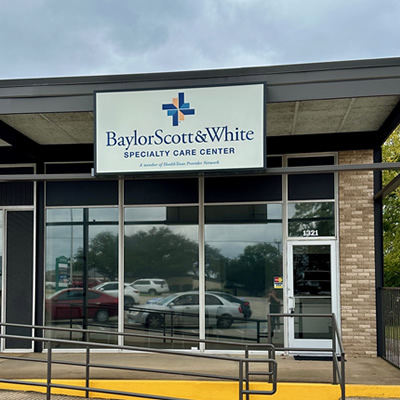
Baylor Scott & White Center for Thoracic Surgery - Tyler
1321 S Beckham Ave , Tyler, TX, 75702
Baylor Scott & White Center for Thoracic Surgery - Waxahachie
2480 N Interstate 35E , Waxahachie, TX, 75165
Baylor Scott & White Charles A. Sammons Cancer Center - Dallas
3410 Worth St , Dallas, TX, 75246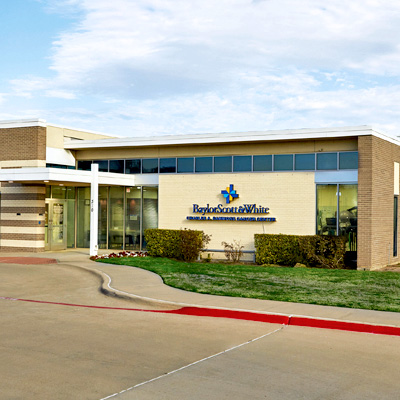
Baylor Scott & White Charles A. Sammons Cancer Center - Duncanville
310 E Hwy 67 , Duncanville, TX, 75137- Monday: 8:00 am - 5:00 pm
- Tuesday: 8:00 am - 5:00 pm
- Wednesday: 8:00 am - 5:00 pm
- Thursday: 8:00 am - 5:00 pm
- Friday: 8:00 am - 5:00 pm

Baylor Scott & White Charles A. Sammons Cancer Center - Irving
2001 N MacArthur Blvd Ste 120, Irving, TX, 75061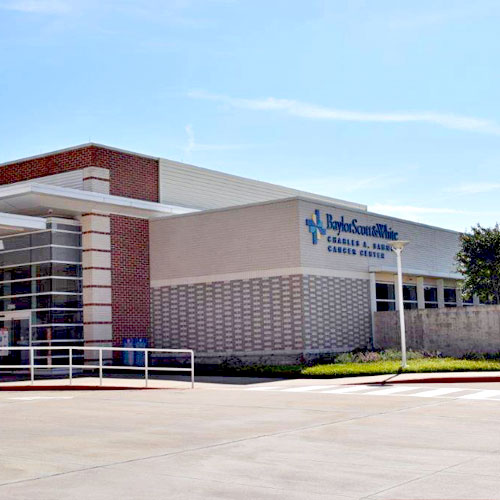
Baylor Scott & White Charles A. Sammons Cancer Center - Waxahachie
2380 N Interstate 35E , Waxahachie, TX, 75165- Monday: 7:30 am - 4:30 pm
- Tuesday: 7:30 am - 4:30 pm
- Wednesday: 7:30 am - 4:30 pm
- Thursday: 7:30 am - 4:30 pm
- Friday: 7:30 am - 4:30 pm
- Saturday: 7:30 am - 4:30 pm
- Sunday: 7:30 am - 4:30 pm

Baylor Scott & White Imaging Center - Forney
763 E US Hwy 80 Ste 120, Forney, TX, 75126- Monday: 8:00 am - 5:00 pm
- Tuesday: 8:00 am - 5:00 pm
- Wednesday: 8:00 am - 5:00 pm
- Thursday: 8:00 am - 5:00 pm
- Friday: 8:00 am - 5:00 pm
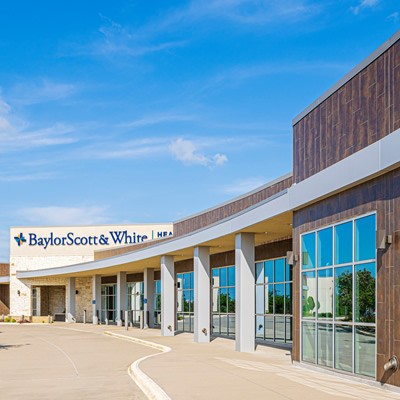
Baylor Scott & White Imaging Center - Greenville
4400 Interstate 30 W Ste 200, Greenville, TX, 75402- Monday: 8:00 am - 5:00 pm
- Tuesday: 8:00 am - 5:00 pm
- Wednesday: 8:00 am - 5:00 pm
- Thursday: 8:00 am - 5:00 pm
- Friday: 8:00 am - 5:00 pm

Baylor Scott & White Imaging Center - Rockwall
1005 W Ralph Hall Pkwy Ste 121, Rockwall, TX, 75032- Monday: 8:00 am - 5:00 pm
- Tuesday: 8:00 am - 5:00 pm
- Wednesday: 8:00 am - 5:00 pm
- Thursday: 8:00 am - 5:00 pm
- Friday: 8:00 am - 5:00 pm

Baylor Scott & White Imaging Center - Wylie
2300 W FM 544 Ste 110, Wylie, TX, 75098- Monday: 8:00 am - 5:00 pm
- Tuesday: 8:00 am - 5:00 pm
- Wednesday: 8:00 am - 5:00 pm
- Thursday: 8:00 am - 5:00 pm
- Friday: 8:00 am - 5:00 pm

Baylor Scott & White Medical Center - Austin
5245 W US Hwy 290 Service Rd , Austin, TX, 78735
Baylor Scott & White Medical Center - Buda
5330 Overpass Rd , Buda, TX, 78610
Baylor Scott & White Medical Center - College Station
700 Scott and White Dr , College Station, TX, 77845
Baylor Scott & White Medical Center - Lakeway
100 Medical Pkwy , Lakeway, TX, 78738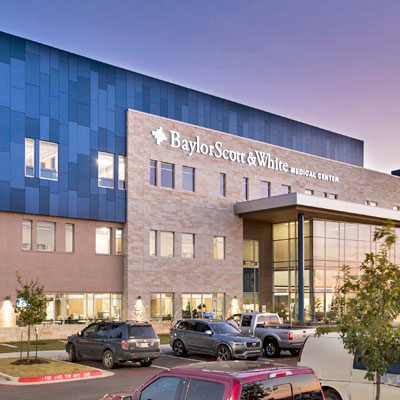
Baylor Scott & White Medical Center - Pflugerville
2600 E Pflugerville Pkwy Ste 100, Pflugerville, TX, 78660
Baylor Scott & White Medical Center - Round Rock
300 University Blvd , Round Rock, TX, 78665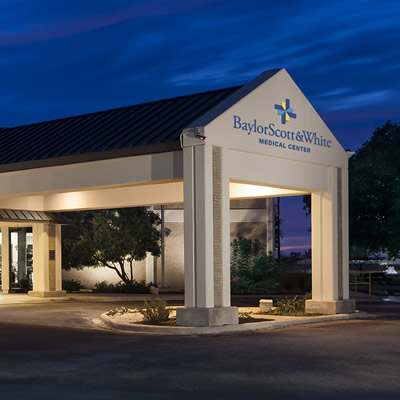
Baylor Scott & White Medical Center - Taylor
305 Mallard Ln , Taylor, TX, 76574
Baylor Scott & White Medical Center - Temple
2401 S 31st St , Temple, TX, 76508
Baylor Scott & White Medical Plaza 900 - College Station
900 Scott and White Dr , College Station, TX, 77845- Monday: 6:30 am - 6:00 pm
- Tuesday: 6:30 am - 6:00 pm
- Wednesday: 6:30 am - 6:00 pm
- Thursday: 6:30 am - 6:00 pm
- Friday: 6:30 am - 6:00 pm

Baylor Scott & White Pulmonary and Sleep Medicine Clinic - Waco
120 Hillcrest Medical Blvd Bldg II, Ste 305, Waco, TX, 76712- Monday: 7:30 am - 6:00 pm
- Tuesday: 7:30 am - 6:00 pm
- Wednesday: 7:30 am - 6:00 pm
- Thursday: 7:30 am - 6:00 pm
- Friday: 7:30 am - 6:00 pm
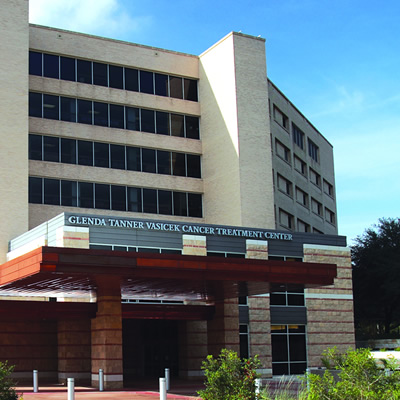
Baylor Scott & White Vasicek Cancer Treatment Center - Temple
2401 S 31st St , Temple, TX, 76508- Monday: 8:00 am - 5:00 pm
- Tuesday: 8:00 am - 5:00 pm
- Wednesday: 8:00 am - 5:00 pm
- Thursday: 8:00 am - 5:00 pm
- Friday: 8:00 am - 5:00 pm
